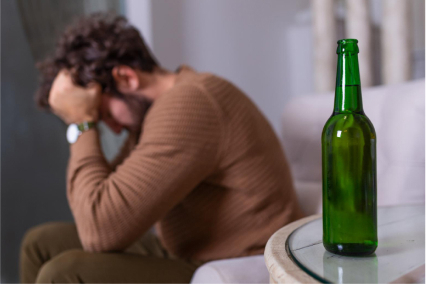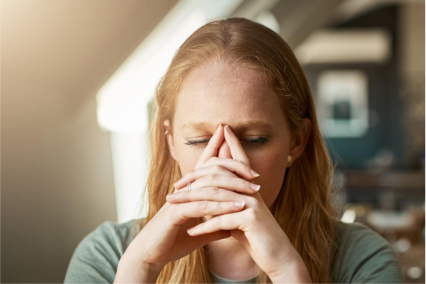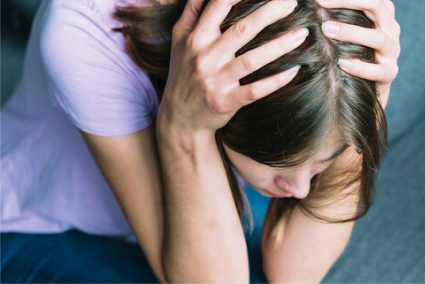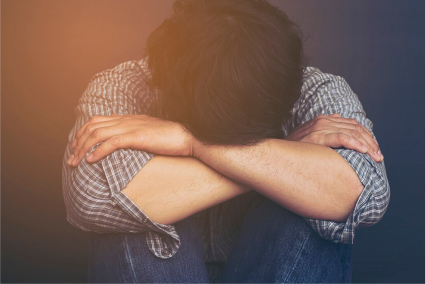A Guide to Overcoming Depression
Navigating depression’s challenges can feel daunting, yet it’s vital to recognize you’re not alone. Understanding how to cope with depression is key to reclaiming control and nurturing emotional well-being. This article delves into ten potent strategies to guide you through depression’s shadows toward a brighter future. From daily routines to professional support, these coping mechanisms can profoundly improve mental health. Let’s uncover the valuable tools fostering healing and resilience.
10 Depression Coping Techniques
- Establish a Routine: Structure your day with consistent activities, such as waking up and going to bed at the same time, to provide stability and a sense of purpose.
- Engage in Physical Activity: Deep breathing, meditation, and progressive muscle relaxing are all techniques that can help you feel less stressed and more calm and well.
- Include Mindfulness and Relaxation Techniques: Deep breathing, meditation, and progressive muscular relaxation are among the strategies that might assist lower tension and advance peace and well-being.
- Connect with Supportive People: Talk to family and friends to get some encouragement during difficult times.
- Limit Alcohol and Substance Use: Substance use can worsen symptoms of depression, so it’s essential to avoid excessive alcohol or drug consumption.
- Get Sufficient Sleep: Aim for at least 7-9 hours of good sleep every night to feel better to improve mood regulation and overall well-being.
- Eat a Balanced Diet: Fuel your body with nutritious foods rich in vitamins, minerals, and omega-3 fatty acids, which can positively impact mood and energy levels.
- Set Realistic Goals: Break tasks into smaller, manageable steps, and celebrate achievements, no matter how small, to boost self-esteem and motivation.
- Seek Professional Help: Don’t hesitate to reach out to a therapist, counselor, or psychiatrist for professional support and guidance. There are effective treatments for depression available today.
- Exercise Self-Compassion: Be kind and patient with yourself the way you would with a friend in a similar situation.

Skip To:
Get Help. Feel Better. Break-Free.
Premier Accredited Dual Diagnosis Mental Health Centers Near You
No matter past therapy challenges, our dedicated therapists provide unwavering support. Our compassionate behavioral health specialists are committed to standing by your side through it all. When you are prepared to take the next step or want guidance on counseling to transform your life, reach out. We will help guide you to the resources you need for support. There is no pressure or obligation. Call our confidential hotline today.
FREE 24/7 Dual Diagnosis Mental Health Therapy HelplineFacts About Depression

- Prevalence: Depression is one of the most often occurring mental illnesses, affecting over 264 million people of all ages globally.
- Gender Differences: Women are more likely than men to experience depression, with studies suggesting hormonal factors, societal pressures, and life experiences play a role.
- Symptoms: Symptoms of depression can vary but often include fluctuations in weight, sleep problems, feelings of persistent sadness, shame or worthlessness, poor concentration, and ideas of death or suicide.
- Impact on Daily Life: Depression can significantly impair daily functioning, affecting work, school, relationships, and overall quality of life.
- Risk Factors: Risk factors for depression include genetics, brain chemistry, trauma, stress, medical conditions, and certain medications.
- Age of Onset: A person can suffer from depression at any age, but it often first appears during late adolescence or early adulthood. However, it can also develop in children and older adults.
- Co-Occurring Conditions: Depression frequently coexists with other mental health disorders such as anxiety, substance abuse, eating disorders, and certain personality disorders.
- Treatment Options: Effective treatments for depression include psychotherapy, medication, lifestyle changes (e.g., exercise, healthy diet, stress management), and in severe cases, hospitalization or electroconvulsive therapy (ECT).
- Stigma and Awareness: Despite being a common and treatable condition, the stigma surrounding mental illness often prevents people from seeking help. Increasing awareness and promoting open discussions can help can help inspire people to get help.
- Recovery: With suitable therapy and support, many people with depression can lead fulfilling, productive lives. Early intervention is key to promoting recovery and preventing long-term consequences.
Depression Statistics
Understanding depression’s stages and prevalence is vital for addressing its impact on individuals and society. Depression affects millions worldwide, with more than 264 million people suffering globally, according to the World Health Organization. It can affect people of any age and gender. Additionally, depression can significantly impact work productivity and absenteeism, with mental health conditions being among the leading causes of workplace productivity loss, as reported by the World Economic Forum.
In the United States, around 21.0 million adults (8.4% of the adult population) went through at least one major depressive episode, as per the National Institute on Mental Health. This disparity is more pronounced among adult females (10.5%) than males (6.2%). Moreover, major depressive episodes are most prevalent among individuals aged 18-25, affecting 17.0% of this age group, according to the National Institute of Mental Health.
Managing Anxiety and Depression: Effective Coping Strategies
Coping with anxiety and depression presents its challenges, yet integrating various strategies into your daily routine can offer valuable support and enhance overall well-being. While these strategies may not eradicate anxiety and depression entirely, they can provide significant relief. It’s crucial to understand that discovering effective coping mechanisms may require patience and experimentation. Be gentle with yourself during this process, and be sure to seek professional assistance for managing your symptoms.
Here are some effective ways to cope with depression and anxiety:
- Engage in Mindfulness and Relaxation Techniques: Activities like meditation, or deep breathing can help you manage symptoms of anxiety and depression. These techniques can promote relaxation, reduce stress, and enhance overall well-being.
- Stay Active and Exercise Regularly: Incorporate physical activity into your daily routine, as exercise boosts mood, reduces anxiety, and alleviates symptoms of depression. Try to have at least thirty minutes of moderate-intensity exercise a day.

- Seek Social Support: Connect with friends and family members for additional support and encouragement. Sharing your experiences with others might offer a sense of belonging and assist to ease loneliness.
- Maintain a Healthy Lifestyle: Prioritize self-care by following a sensible diet, getting enough sleep, and avoiding alcohol and drug use. A healthy lifestyle positively impacts your mood and makes you more prepared to cope with anxiety and depression.
- Seek Professional Help: Don’t hesitate to reach out to a therapist, counselor, or psychiatrist for professional support and guidance. There are effective treatments and a mental health professional can help you get the right treatment for yourself.

Conquer Emotional Pain. Find Peace, Purpose & Happiness.
Experiencing depression, anxiety, or grappling with mental health challenges? Get compassionate and effective dual diagnosis therapy from our caring counselors in a safe and comfortable environment. Take the first step towards your recovery today.
Hotline (888) 680-7311Managing Postpartum Depression
After childbirth, coping with postpartum depression can feel overwhelming, but there are some things you can do to navigate this challenging period. Firstly, prioritize self-care by ensuring you get enough rest, eat nutritious meals, and engage in gentle physical activity when possible. Additionally, seek support from loved ones, friends, or support groups to get much-needed encouragement. Don’t hesitate to communicate your feelings openly with your partner or trusted individuals. Seeking professional help is crucial, so consider consulting someone who specializes in postpartum mental health. Remember that, with the right support, it is possible to overcome postpartum depression and enjoy motherhood.
- Prioritize self-care: Get adequate rest, eat nutritious meals, and engage in gentle physical activity.
- Ask support from loved ones: Your friends, family, or support groups can help you get understanding and encouragement you need.
- Be open with people in your life: Communicate your emotions to your partner or trusted individuals to alleviate feelings of isolation.
- Seek professional help: Consult with a healthcare provider or therapist specializing in postpartum mental health for personalized support and treatment options.
- Remember you’re not alone: Reach out for support and remember that with the right help, you can overcome postpartum depression and enjoy motherhood.
Absolutely, seeking help and leaning on your support network are crucial steps in coping with postpartum depression. Remember, you’re not alone in this journey, and reaching out for support is a sign of strength, not weakness. Postpartum depression is a treatable condition, and with the right support and resources, you can overcome it and fully embrace the joys of motherhood.
Comfortable Facilities & Amenities
High-Quality Mental Health Treatment & Behavioral Health Programs
Mental Health Center TourPremier Mental Health Centers. A Private Oasis. Inpatient Mental Health Rehab Programs Vary.
Mental Health Hotline (888) 680-7311History of recovery success excellence, backed by a Team w/ Record of:
15+
Years of Unified Expertise
100s
5-Star Reviews Across Treatment Centers
10K
Recovery Stories
- Comprehensive Dual-Diagnosis Treatment
- Complimentary Family & Alumni Programs
- Comfortable Onsite Clinical & Recreational Therapy
- Coaching, Recovery & Development Events for Alumni
Coping with Seasonal Affective Disorder
As the seasons change and daylight hours decrease, coping with seasonal depression becomes vital for maintaining mental health. Firstly, prioritize exposure to natural light: spend some time outdoors every day during daylight hours, or using light therapy boxes indoors. Maintain a consistent sleep schedule and have regular physical activity, as it can also help regulate mood and energy levels. Seek social support from friends and try to participate in enjoyable activities to combat feelings of isolation and boost your mood. Some stress management techniques can also be helpful in alleviating symptoms and promote relaxation, so try mindfulness, meditation, or deep breathing exercises. If symptoms persist or worsen, don’t hesitate to seek professional help.

- Prioritize exposure to natural light: Spend time outdoors during daylight hours or use light therapy boxes indoors.
- Keep a consistent sleep schedule: Make sure to have a regular bedtime and wake-up time to regulate mood and energy levels.
- Engage in regular physical activity: Exercise can help alleviate symptoms of depression and boost mood.
- Seek social support: Stay connected with friends and loved ones to combat feelings of isolation.
- Participate in enjoyable activities: Engage in hobbies or activities that bring you pleasure and fulfillment.
- Practice stress management techniques: Incorporate mindfulness, meditation, or deep breathing exercises into your daily routine to promote relaxation.
- Consult with a healthcare professional: If symptoms persist or worsen, seek guidance from a doctor or therapist for personalized treatment options.
Overcoming Post-Injury Depression
Navigating depression following an injury can compound emotional distress with physical limitations and potential lifestyle adjustments, making coping particularly challenging. Here are some strategies to assist in managing depression related to injury:
- Stay connected: Maintain communication with friends, family, and healthcare providers for support and understanding.
- Focus on what you can control: Direct your energy towards activities and tasks within your capabilities, acknowledging and accepting limitations as they arise.
- Seek professional help: Consult with a therapist or counselor specializing in injury-related depression to explore coping strategies and treatment options.
- Engage in enjoyable activities: Participate in hobbies or interests that bring joy and distraction, adapting them to suit your current abilities.
- Practice self-compassion: Be kind to yourself during the recovery process, acknowledging the challenges you’re facing and celebrating small victories along the way.
Best-in-class, Accredited, 5-Star Network, Effective Mental Health Dual Diagnosis Therapy. Comprehensive Integrated Inpatient Rehab with Free Post Discharge Therapy Planning.
CALL (888) 680-7311End Emotional Turmoil Rollercoaster. Achieve Stability & Joy Through Recovery Treatment. Initiate Mental Health Counseling Today. Receive Free No-obligation Guidance by Behaviroal Health Therapists Specialy Trained for Mental Health Recovery.
Coping Strategies for Bipolar Disorder Depression
Finding effective coping mechanisms for depression is essential for managing its impact on daily life. Here are some strategies that can help individuals cope with depression:
- Seek professional help: Consult with a therapist or psychiatrist for personalized treatment options, including therapy and medication.
- Build a support network: Surround yourself with understanding friends, family, or support groups who can offer empathy and encouragement.
- Engage in self-care activities: Prioritize activities that are good foe overall physical and emotional well-being (exercise, relaxation techniques, and hobbies).
- Set realistic goals: Break tasks into manageable steps and celebrate achievements, no matter how small, to maintain motivation and self-esteem.
- Challenge negative thoughts: Practice cognitive-behavioral techniques to identify and challenge unhelpful thought patterns contributing to depression.

Coping with depression is a multifaceted journey that requires patience, self-compassion, and perseverance. By implementing these strategies and seeking support when needed, individuals can develop effective coping skills and navigate through challenging times with resilience and hope.
Navigating Depression: Strategies for Non-Medication Coping
Addressing depression without medication involves a comprehensive approach centered on lifestyle adjustments, self-care practices, and therapeutic techniques. Engaging in regular exercise releases endorphins, fostering improved mood, while maintaining a nutritious diet supports overall well-being. Mindfulness activities like deep breathing and meditation aid in managing negative thoughts and alleviating stress. Establishing a robust support system through connections with friends, family, or support groups provides emotional validation and a sense of belonging. Exploring creative pursuits, setting attainable goals, and adhering to a daily routine contribute to a sense of purpose and achievement. Therapeutic interventions like cognitive-behavioral therapy (CBT) or talk therapy offer practical tools for recognizing and addressing negative thought patterns.
While medication may be beneficial for some individuals, these strategies provide alternative means for navigating depression and enhancing mental health. It’s important to collaborate with mental health professionals who will create a personalized treatment plan for your unique needs and circumstances.
Improve Your Life
Embark on a free call to our behavioral health program advisors. Explore our dual-diagnosis mental health rehab programs. Each We Level Up treatment center network facility specializes in specific recovery counseling. Call to feel & get better.
- Individualized Care
- Attentive Accountable Team
- First-class Amenities
- Licensed & Accredited
- Recognized 5-Star Network
We’ll Call You
Search How to Cope with Depression Topics & Resources
Sources
- American Psychiatric Association. (2013). Diagnostic and statistical manual of mental disorders (5th ed.). Arlington, VA: American Psychiatric Publishing. Learn More: How to Cope with Depression
- Depression. (2018).
nimh.nih.gov/health/topics/depression/ Learn More: What does depression feel like? / Depression Symptoms Learn More: How to Cope with Depression - Depression medicines. (2019).
fda.gov/consumers/free-publications-women/depression-medicines Learn More: How to Cope with Depression - O’Donnell ML, et al. (2019). Adjustment disorder: Current developments and future directions.
mdpi.com/1660-4601/16/14/2537 What does depression feel like? / Depression Symptoms Learn More: How to Cope with Depression - What is PTSD? (2020).
psychiatry.org/patients-families/ptsd/what-is-ptsd Learn More: How to Cope with Depression - Depression. (2017).
nami.org/About-Mental-Illness/Mental-Health-Conditions/Depression Learn More: How to Cope with Depression - IsHak WW, et al. (2018). Pain and depression: A systematic review.
pubmed.ncbi.nlm.nih.gov/30407234/ Learn More: How to Cope with Depression - Israel L. (2022). Personal interview.
- Ostergaard L, et al. (2018). Low on energy? An energy supply-demand perspective on stress and depression.
sciencedirect.com/science/article/abs/pii/S0149763418300812 Learn More: How to Cope with Depression - Steiger A, et al. (2019). Depression and sleep.
mdpi.com/1422-0067/20/3/607/htm?from=article_link Learn More: How to Cope with Depression - Vidal-Ribas P, et al. (2021). How and why are irritability and depression linked?
pubmed.ncbi.nlm.nih.gov/33743947/ Learn More: How to Cope with Depression





